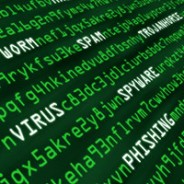
There are undoubtedly millions of computer users around the world who use a computer at work, at home, pretty much every day and have never had a virus! Unfortunately, there are just as many millions who have experienced this ‘joy’ first hand. And of those who have, many of them will have experienced more than one virus – possibly dozens.
So what exactly is a computer virus, how do I catch it and, more to the point, how do I get rid of it and avoid catching more?
What do I really need to know about ‘safe computing’?
Firstly, let me say that computer viruses come in all shapes and sizes from the fairly trivial nuisance to the deadly serious – just deleted all your files – type. There is quite a lot of confusion as to exactly what is a virus and what isn’t. There are trojans and worms, backdoors and rootkits, spyware and adware and on and on. To many people a virus is simply any kind of bad thing that happens to their computer. For the purposes of this note I’m going to lump them all together and call it ‘unwanted software’.
Secondly, none of the Internet Security or AntiVirus software packages on the market today are capable of preventing 100% of these pests. Most people run some antivirus software and have still managed to pick something unwanted up. The important thing is to know what to do and when to do it. Sometimes, you will get an obvious warning from your antivirus software, sometimes you will get no warning at all and sometimes you will get something that looks like a legitimate warning but is in fact all part of the scam. So, recognising the symptoms becomes essential. Of course, sometimes you won’t need to recognise the symptoms – sometimes your hard disk will have been erased and the only symptom will be an inability to start up (or find any of your files when you do!)
If you are unfortunate enough to become ‘infected’ and your antivirus software seems unable to do much about it, you need to know what the alternatives are. You also need to know what you should be doing to avoid these things in the first place. Simply installing an Antivirus product and letting it ‘get on with it’, is not an adequate solution. How often should you run a scan? What files should you scan? How often is your Antivirus software updated? All these questions and a number of others need to be understood and answered. And there is no AntiVirus product that is guaranteed to protect you from all viruses and other scams.

